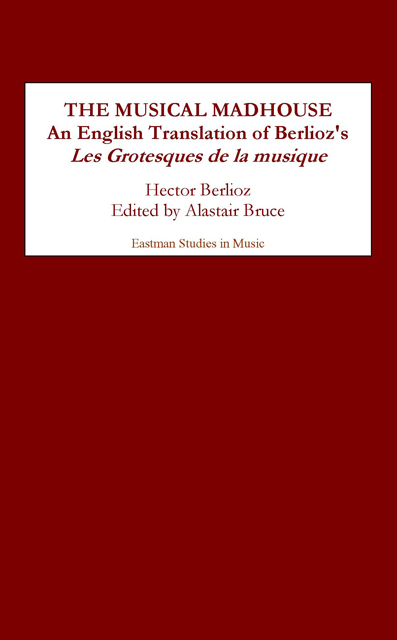Ingratitude shows an independent spirit
Published online by Cambridge University Press: 21 March 2023
Summary
There was once a man of great intelligence, with an excellent, cheerful disposition but such an acute sensibility that as a result of having his feelings bruised and battered by the world around him he had ended up as a melancholic. One great failing disfigured his rare qualities: he was a scoffer— Oh! but a scoffer such as there had never been before. He scoffed at everyone and everything: philosophers, lovers, men of learning, men of none, the devout, the godless, the old, the young, the sick, doctors (especially doctors), fathers, children, innocent girls, guilty women, marquesses, commoners, actors, poets, his enemies, his friends and finally himself. Only musicians, for some unknown reason, escaped his tireless mockery. Of course, musicians had been satirised already: Shakespeare trounced them pretty soundly in the final scene of Act IV of Romeo and Juliet:
Peter: What say you, James Soundpost?
3rd Musician: Faith, I know not what to say.
Peter: O, I cry you mercy, you are the singer.
…
2nd Musician: Come, we’ll in here; tarry for the mourners, and stay dinner.
It’s hard to believe that, after having vilified so many people, the excellent fellow I speak of was never assassinated. After his death, it’s true, they would have liked nothing more than to drag him through the mire, and his wife could calm their fury only by throwing them money from the windows of the death-chamber.
Although he was the son of a simple upholsterer, he had studied the classics thoroughly. He wrote both verse and prose remarkably well; so remarkably, indeed, that in the end, after a century and a half of reflection, the Parisians had the idea of putting up a bronze statue to him, with the titles of his numerous works on its pedestal. It was a splendid thought on their part. But the men responsible for carrying out this task, which was meant to celebrate a man of letters, were not too strong on spelling, so they wrote the name of one of the illustrious scoffer’s masterpieces as The Misser. This caused quite a scandal at the time among the knowledgeable grocers of the Rue Richelieu, and resulted in the man in charge of erecting the monument being obliged to have the botched inscription scratched out during the night.
- Type
- Chapter
- Information
- The Musical MadhouseAn English Translation of Berlioz's <i>Les Grotesques de la musique</i>, pp. 118 - 120Publisher: Boydell & BrewerPrint publication year: 2003



